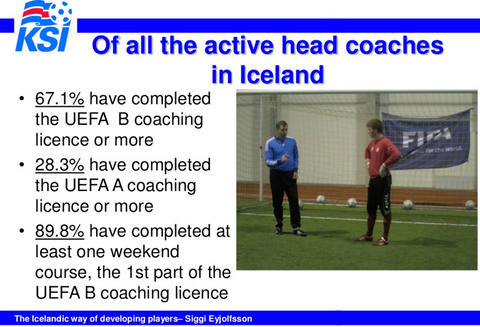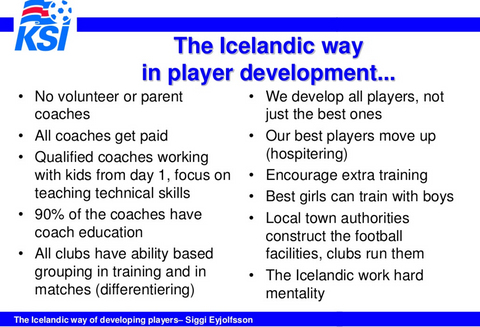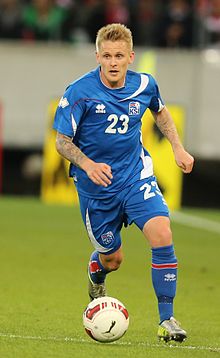Why Englad Lost to Iceland
Icelandic Football Development System
In all honesty, It’s a bit painful to be writing this article as an Englishman after this week’s defeat, but more so than ever, I find this subject very fitting.
For those of you who know me you’ll know I have long been an advocator of the Iceland Football System, one that can be readily explained by this small window into the origin of their development system written by Robin Russell of Sport Path, Inc.

The Icelandic story has two parts, one with immediate interest, one with a closer to home meaning. How do you beat an English team valued at over half a billion dollars and why in the US, with our unlimited resources, are we not able to replicate a system such as the Icelandic one?

Iceland Beating the English
It’s a surprise to many that it is a surprise to many. Iceland has been at the fore front of player development for the last decade and has one of the best performance records in the last 3 years on the men’s side, but a closer look will see that their youth teams and women’s side have also achieved significant success given their resources.
Disciplined, organized, committed forged in the youth national development system at an early age where patience and nutriment are the two key components.

The US? Iceland has less players than the smallest of the United States Youth Soccer’s (USYSA) 55 State Association’s, Rhode Island. So why can Iceland be so prolific in spite of the odds against them and what lessons are there for US Soccer.
Iceland has a series of development pillars that are not open to interpretation. Their disciplines are built on education, patience, collaboration and a community of educators who are all on the same page. There are strict agreements on the following: field sizes and surfaces, communication systems, that their best and qualified educators work with their youngest players, season schedule that incorporates competitive play but also development seasons, Futsal play, free time to explore other athletic endeavors keeping hem fresh and enthused such that all of the Club’s and agencies abide by this system.

(This article was written by Bownet COO, Mark Botterill.)


Leave a comment